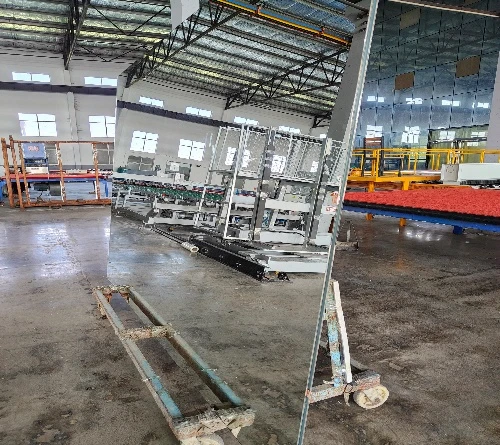Dec . 05, 2024 16:51 Back to list
Understanding the Benefits and Uses of Insulated Glass in Modern Architecture
The Importance of Insulated Glass in Modern Architecture
In the evolving world of architecture and construction, sustainability and energy efficiency have become paramount. One significant innovation that caters to these needs is insulated glass, a technologically advanced solution that not only enhances building aesthetics but also improves energy efficiency and comfort. Understanding the properties and benefits of insulated glass can help homeowners, architects, and builders make informed decisions that contribute to environmental sustainability and cost savings.
What is Insulated Glass?
Insulated glass, also known as double or triple glazing, consists of two or more glass panes separated by a space filled with gas, typically argon or krypton. This design creates an effective thermal barrier, significantly reducing heat transfer between the interior and exterior of a building. The airspace helps to minimize heat loss in winter and keeps indoor spaces cooler during warmer months, leading to improved energy efficiency.
The construction of insulated glass not only serves as an effective insulator but also provides excellent soundproofing properties. This reduction in noise pollution is particularly beneficial for buildings located in busy urban areas or near highways.
Energy Efficiency Benefits
The primary reason for the widespread adoption of insulated glass is its energy efficiency. According to studies, insulated glass units can reduce heating and cooling costs by up to 30%. This efficiency is increasingly crucial as energy prices rise and the demand for greener buildings grows. Many building codes now require the use of energy-efficient windows, and insulated glass easily meets these regulations.
In addition to reducing energy costs, properly installed insulated glass contributes to a building's overall thermal performance. It helps to maintain a stable indoor temperature, which enhances occupant comfort. Moreover, energy-efficient buildings often achieve higher property values and attract environmentally-conscious tenants or buyers.
Environmental Impact
insulated glass

By employing insulated glass, building designs can significantly lower their carbon footprint. Less energy consumption means reduced greenhouse gas emissions, aligning with global efforts to combat climate change. Additionally, many manufacturers of insulated glass are committed to sustainable practices, utilizing eco-friendly materials and processes in production.
As society becomes more aware of environmental issues, the demand for sustainable building materials will continue to rise. Insulated glass fits this trend perfectly, representing a practical solution for architects and builders striving to create eco-friendly constructions.
Aesthetic Versatility
Beyond energy efficiency and environmental impact, insulated glass offers incredible aesthetic flexibility. With various finishes, tints, and configurations available, builders can create visually stunning facades that enhance the beauty of a structure while ensuring energy performance. Insulated glass can be tailored to fit any design, from sleek modern buildings to traditional homes, offering a seamless integration of form and function.
Cost Considerations
While the initial investment for insulated glass may be higher than standard single-pane windows, the long-term savings often outweigh the upfront costs. Reduced energy bills, lower maintenance expenses, and increased property value provide a compelling argument for the installation of insulated glass. Additionally, various financing options and government incentives for energy-efficient upgrades can alleviate concerns about the initial cost.
Conclusion
The adoption of insulated glass in building design is not just a trend; it represents a shift towards smarter, more sustainable architecture. With its energy-saving capabilities, environmental benefits, aesthetic versatility, and cost-effectiveness, insulated glass has become a fundamental component in the quest for greener buildings. As architects, builders, and homeowners seek innovative ways to create energy-efficient spaces, insulated glass will undoubtedly play a critical role in shaping the future of modern architecture. Embracing this technology today will not only yield immediate benefits but also contribute to a more sustainable tomorrow.
-
Safety and Style with Premium Laminated Glass Solutions
NewsJun.24,2025
-
Reinvents Security with Premium Wired Glass
NewsJun.24,2025
-
Premium Float Glass Line for Modern Architecture
NewsJun.24,2025
-
Low Emissivity Glass for Energy-Efficient Architecture
NewsJun.24,2025
-
High-Performance Insulated Glass Solutions for Modern Architecture
NewsJun.24,2025
-
Elevates Interior Style with Premium Silver Mirror
NewsJun.24,2025
Related PRODUCTS














